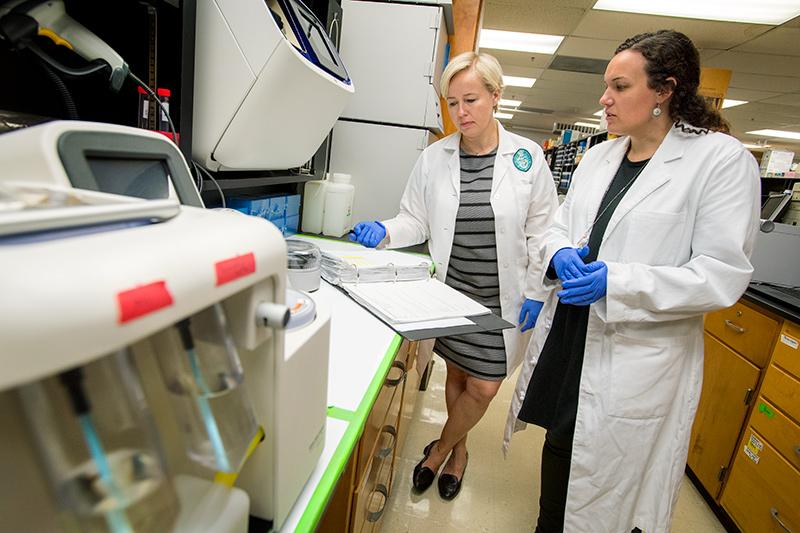NIH awards $11.3 million grant to Tulane Center for Aging
The National Institutes of Health awarded an $11.3 million Center of Biomedical Research Excellence (COBRE) grant to the Tulane Center for Aging. The grant means an additional five years of funding for the multidisciplinary project that began in 2012.
The COBRE award further establishes the Tulane center’s research into aging and regenerative medicine by junior investigators, expanding its cardiovascular focus to emphasize musculoskeletal aging. The center will also examine chronic low-grade inflammation, a hallmark of many age-related diseases, such as osteoarthritis, atherosclerosis, Alzheimer’s and macular degeneration.
The COBRE program helps universities support and mentor junior researchers. The goal is to fuel their research and careers to the point where they can land federal grants or equivalent funding to become independent investigators.
“The COBRE project award provides resources which allow me to be competitive in my field,” said assistant professor of medicine Malwina Czarny-Ratajczak, a junior investigator and molecular geneticist whose research focuses on the contribution of dysfunctional telomeres (the segment of DNA that occurs at the ends of chromosomes) to primary osteoarthritis. “The access to cutting-edge technologies through COBRE is critical for execution of my project.”
Junior investigator Kristin S. Miller, an assistant professor of biomedical engineering, says the COBRE is an “invaluable opportunity” for her Biomechanics of Growth and Remodeling Lab, which uses advanced tissue-engineering strategies to improve adult response to injuries and other circumstances where regenerative capabilities might be limited.
“It catapulted our research productivity forward by providing me protected time to focus on developing novel platforms for future NIH applications,” she said. “Secondly, the multidisciplinary and collaborative nature of the other junior investigators, pilot project leaders and faculty within the COBRE and its Genomics, Bioinformatics and Biostatistics Core has provided a strong community to refine and improve our research ideas.”
Since 2012, six junior investigators in the Center for Aging have received NIH Research Project Grants and one was awarded an American Heart Association grant.
S. Michal Jazwinski, the John W. Deming, MD, Regents Chair in Aging, a professor of medicine and director of the Center for Aging, spearheaded the COBRE when it was the only multidisciplinary aging-focused COBRE in the country.
“Because you’re so invested as a mentor in their success, when they do reach that independent-funded status, it’s a great pleasure. It’s a joy,” he said. “You’re proud of them, and you’re proud of the program.”


